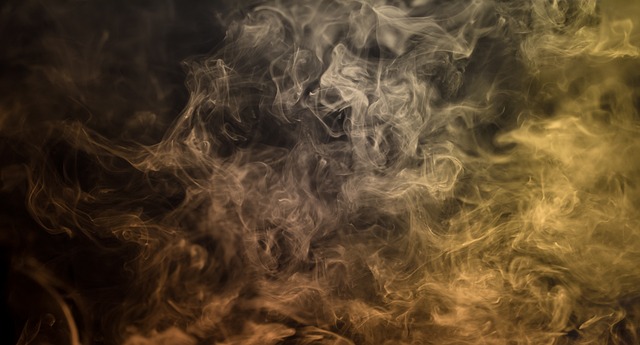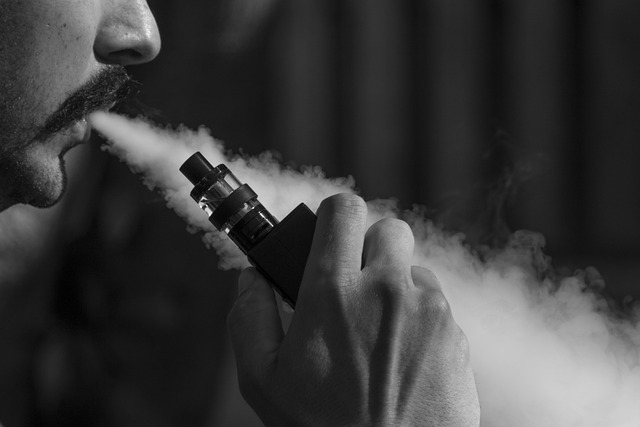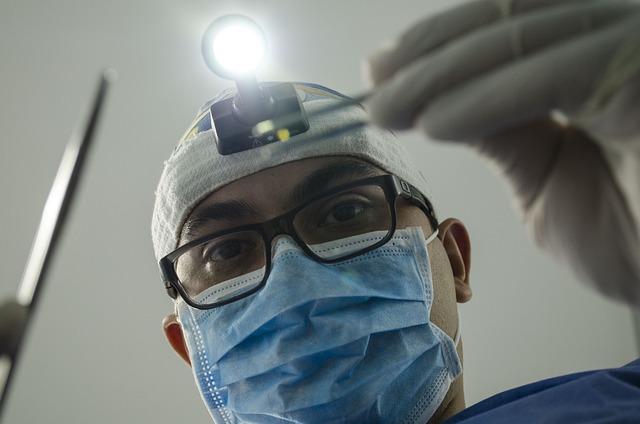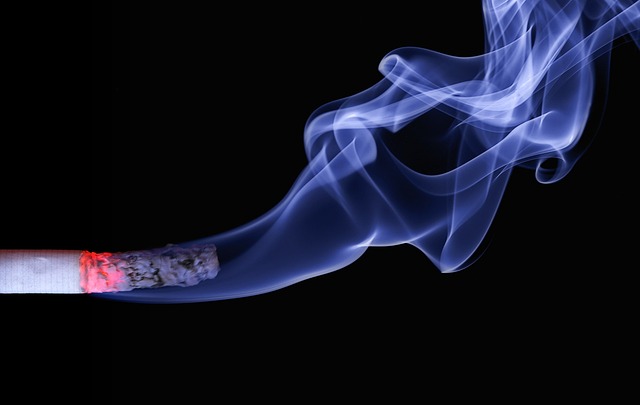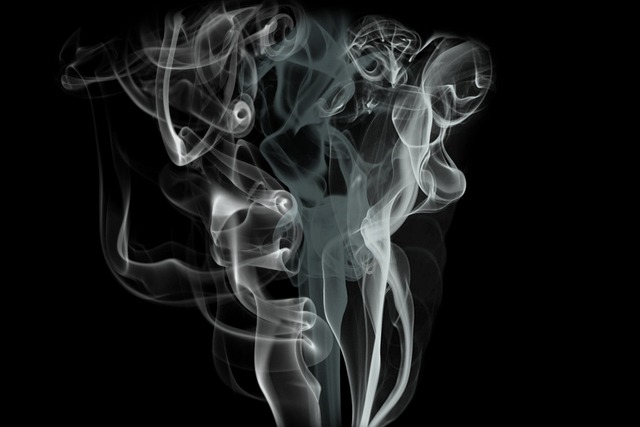Can You Hit a Vape After Wisdom Teeth Removal? Guidelines
Wisdom teeth removal is a common dental procedure that many individuals undergo at some point in their lives. While the recovery process is crucial for a successful outcome, it often comes with a laundry list of dos and don’ts. One question that frequently arises is whether it’s safe to indulge in the newfound trend of vaping after wisdom teeth extraction. In this article, we will delve into the guidelines surrounding this topic, providing you with confident, knowledgeable, and neutral insights to help you make an informed decision. So, if you’re eager to know whether you can hit a vape after wisdom teeth removal, sit back, relax, and let’s explore the facts.
1. Understanding the Importance of Wisdom Teeth Removal: Precautions and Guidelines
Wisdom teeth removal is a common dental procedure that is often recommended by dentists. It is important to understand the significance of this procedure and the precautions and guidelines associated with it. Here are some key points to consider:
1. Timing: It is generally recommended to remove wisdom teeth during the late teens or early twenties, before the roots fully develop. This helps to minimize complications and promotes faster healing.
2. Anesthesia: Wisdom teeth removal is typically performed under local anesthesia, which numbs the area being treated. In some cases, general anesthesia may be used to ensure the patient’s comfort throughout the procedure.
3. Surgery: The actual removal of wisdom teeth is a surgical procedure that involves making an incision in the gum tissue, removing any bone that blocks access to the tooth, and then extracting the tooth. Stitches may be required to close the incision.
4. Recovery: Proper post-operative care is crucial for a smooth recovery. Patients should follow these guidelines:
- Avoid strenuous activities for the first few days
- Take prescribed pain medications as directed
- Apply ice packs to reduce swelling
- Eat soft foods and avoid chewing on the extraction site
- Keep the mouth clean by gently rinsing with saltwater
Remember, each person’s situation is unique, and it is essential to consult with a dental professional to determine the best course of action for your specific case. By understanding the importance of wisdom teeth removal and following the necessary precautions and guidelines, you can ensure a successful and comfortable recovery.
2. Post-Surgery Care: Can You Safely Vape After Wisdom Teeth Removal?
After undergoing wisdom teeth removal surgery, it is important to follow proper post-surgery care to ensure a smooth recovery. One common question that arises is whether it is safe to vape during this time. While it may be tempting to resume your vaping routine, it is crucial to consider the potential risks and complications that vaping can pose to the healing process.
Here are a few key points to consider:
- Increased risk of infection: Vaping involves inhaling and exhaling aerosol particles, which can introduce bacteria to the surgical site and increase the likelihood of infection. The wound left behind after wisdom teeth removal is vulnerable and needs time to heal properly, so it is best to avoid any activities that may compromise its healing process.
- Delayed healing: Nicotine, a common component in vape liquids, can restrict blood vessels and impair blood flow, potentially leading to delayed healing. This can prolong your recovery time and increase the risk of complications such as dry socket, a painful condition that occurs when the blood clot in the socket is dislodged or dissolves prematurely.

3. Navigating the Healing Process: Expert Guidelines for Vaping After Wisdom Teeth Extraction
After undergoing wisdom teeth extraction, it is important to follow proper guidelines to ensure a smooth healing process. If you are an avid vaper, you may be wondering how this procedure will affect your vaping routine. To help you navigate this situation, we have gathered expert guidelines to ensure a seamless transition back to your vaping habits. Please keep in mind that every individual’s healing process may vary, so it’s crucial to consult with your dentist or oral surgeon for personalized advice.
1. Allow for proper healing: Your mouth needs time to heal after wisdom teeth extraction, so it’s essential to avoid vaping for at least 48 hours. Vaping too soon may disrupt blood clot formation, leading to a painful condition known as dry socket. It’s best to wait until the extraction site is fully healed, which typically takes around 7-10 days. During this time, focus on maintaining good oral hygiene by gently rinsing your mouth with saltwater.
2. Adjust your vaping technique: Once your mouth has healed, you can gradually reintroduce vaping into your routine. However, it is recommended to make a few adjustments to ensure a comfortable experience. Firstly, opt for a lower nicotine strength e-liquid to minimize any potential irritation. Secondly, consider using a mouthpiece cover or a wider drip tip to prevent any accidental contact with the surgical site. Lastly, try to avoid drawing too forcefully on your vape device, as this could potentially cause discomfort or disrupt the healing process.

4. Potential Risks and Complications: What You Need to Consider Before Hitting a Vape
Before deciding to start vaping, it is important to consider the potential risks and complications associated with this activity. While vaping is often touted as a safer alternative to smoking traditional cigarettes, it is not without its own set of concerns. By being aware of these risks, you can make an informed decision about whether or not vaping is right for you.
1. Health Risks: Vaping has been linked to various health issues, although the long-term effects are still being studied. Some potential risks include:
- Respiratory problems: Vaping can irritate the lungs and airways, leading to symptoms such as coughing, wheezing, and shortness of breath.
- Nicotine addiction: Many e-cigarettes contain nicotine, which is highly addictive. Regular use of nicotine can lead to dependence and withdrawal symptoms.
- Cardiovascular issues: There is evidence suggesting that vaping may have negative effects on heart health, including an increased risk of heart disease and high blood pressure.
2. Unknown Ingredients: E-liquids used in vaping devices can contain a variety of substances, and it is often difficult to know exactly what you are inhaling. Some potential concerns include:
- Harmful chemicals: Studies have found that some e-liquids may contain harmful chemicals such as formaldehyde and acrolein, which can be detrimental to your health when inhaled.
- Heavy metals: Vaping devices have been found to release heavy metals such as lead and cadmium, which can be toxic when inhaled or ingested.
- Contaminants: Poor manufacturing processes or low-quality products can lead to the presence of contaminants in e-liquids, which can pose additional health risks.

5. Following Professional Advice: Clear Steps to Determine When It’s Safe to Vape After Wisdom Teeth Removal
Step 1: Consult with Your Dentist
Before making any decisions regarding vaping after wisdom teeth removal, it is crucial to consult with your dentist. Your dentist will be able to assess your individual situation and provide personalized advice based on your specific needs. They will take into consideration factors such as the complexity of your extraction, your overall oral health, and any potential complications that may arise.
Step 2: Monitor Your Healing Progress
After wisdom teeth removal, it is important to closely monitor your healing progress before considering vaping. Pay attention to any signs of infection, excessive bleeding, or severe pain. It is recommended to wait until the initial healing phase has occurred, which typically takes about 48 to 72 hours. However, keep in mind that every individual is different, so it is crucial to follow your dentist’s advice and guidance throughout the healing process.

6. Supporting the Healing Journey: Alternatives to Vaping During Wisdom Teeth Recovery
During the recovery period after wisdom teeth extraction, it is important to avoid vaping as it can hinder the healing process and potentially lead to complications. However, there are several alternatives that can provide relief and comfort without compromising your recovery. Here are some effective alternatives to consider:
- Oral Pain Medication: Over-the-counter pain relievers such as acetaminophen or ibuprofen can help alleviate discomfort during the healing journey. It is vital to follow the recommended dosage and consult with your dentist or oral surgeon for personalized advice.
- Ice Packs: Applying ice packs to the affected area can help reduce swelling and numb the pain. Wrap a thin cloth around the ice pack and gently place it on your cheek for 15 minutes at a time, with 15-minute breaks in between.
- Mouth Rinse: An alcohol-free mouthwash or warm saltwater rinse can aid in keeping the extraction site clean and promote healing. Rinse gently after meals or as recommended by your dentist, being careful not to disturb any blood clots that may have formed.
Furthermore, it is crucial to maintain a soft diet during the recovery period. Opt for nutrient-rich foods that require minimal chewing, like mashed potatoes, yogurt, soup, or smoothies. Avoid foods that are hard, chewy, or spicy, as they can irritate the extraction site and slow down the healing process. Remember to gently brush your teeth using a soft-bristled toothbrush, being cautious around the extraction site to prevent any unnecessary discomfort or injury.
7. Final Thoughts: Prioritizing Oral Health and Making Informed Choices Post-Wisdom Teeth Extraction
After undergoing wisdom teeth extraction, it is crucial to prioritize oral health and make informed choices to ensure a smooth recovery process. Here are some final thoughts and recommendations to consider:
1. Follow post-operative instructions: Your oral surgeon will provide you with specific post-operative instructions to aid in the healing process. It is essential to follow these instructions diligently, including taking prescribed medications, managing swelling, and maintaining oral hygiene.
2. Stick to a soft diet: During the initial days following the extraction, opt for soft foods that require minimal chewing to avoid disrupting the healing site. Incorporate items like yogurt, mashed potatoes, smoothies, and soups into your diet. Avoid hard, crunchy, or spicy foods that can potentially irritate the extraction site.
3. Maintain proper oral hygiene: Gently brush your teeth, avoiding the extraction site, within 24 hours after the procedure. Rinse your mouth with a saltwater solution (1/2 teaspoon of salt in eight ounces of warm water) multiple times a day to reduce bacteria and promote healing. Avoid using mouthwash containing alcohol during the initial healing phase.
4. Control bleeding and swelling: Bite down on the gauze pads provided by your oral surgeon to control bleeding, replacing them as instructed. Apply an ice pack to the affected area intermittently for the first 24-48 hours to minimize swelling. If excessive bleeding or swelling persists, contact your oral surgeon immediately.
Frequently Asked Questions
Q: Can you hit a vape after wisdom teeth removal?
A: While it’s best to avoid vaping after wisdom teeth removal, it ultimately depends on your unique circumstances and the advice of your dentist or oral surgeon.
Q: Why is it generally recommended to avoid vaping after wisdom teeth removal?
A: Vaping after wisdom teeth removal can potentially hinder the healing process and increase the risk of complications such as dry socket, infections, and delayed healing.
Q: What is dry socket, and why is it a concern?
A: Dry socket is a painful condition that can occur when the blood clot that forms after tooth extraction becomes dislodged or dissolves prematurely. Vaping, with its suction and heat, may disrupt the blood clot formation, increasing the risk of developing dry socket.
Q: How does vaping increase the risk of infections?
A: Vaping involves inhaling and exhaling vapor, which can introduce bacteria, chemicals, and foreign particles into the mouth. After wisdom teeth removal, the extraction sites are vulnerable to infections, and vaping can potentially introduce harmful substances that may impede the healing process or even cause infections.
Q: Can vaping delay the healing process?
A: Yes, vaping can potentially delay the healing process after wisdom teeth removal. The heat and chemicals present in vape vapor can irritate the surgical sites, leading to inflammation and slowing down the natural healing process.
Q: Is it ever okay to vape after wisdom teeth removal?
A: It is generally recommended to abstain from vaping for at least a few days following wisdom teeth removal. However, if your dentist or oral surgeon gives you the green light and you feel comfortable, you may be able to resume vaping under certain conditions.
Q: What conditions might allow someone to vape after wisdom teeth removal?
A: If your dentist or oral surgeon determines that your healing progress is satisfactory, the extraction sites are not at risk of infection, and you can handle the suction and heat of vaping without causing harm, they may permit you to vape. However, it’s crucial to follow their specific guidelines and recommendations.
Q: What precautions should be taken if vaping is allowed after wisdom teeth removal?
A: If vaping is permitted, it’s essential to maintain excellent oral hygiene by gently and carefully cleaning your mouth, especially around the extraction sites, before and after vaping. Additionally, use a low-heat setting on your vape device to minimize irritation and avoid drawing too strongly on the device to reduce the risk of dislodging blood clots.
Q: What are the potential consequences of vaping too soon after wisdom teeth removal?
A: Vaping too soon after wisdom teeth removal can increase the risk of complications such as dry socket, infections, prolonged healing time, severe pain, and possibly the need for additional treatment or interventions.
Q: How long should I wait to vape after wisdom teeth removal?
A: The duration you should wait before vaping depends on the advice of your dentist or oral surgeon. Typically, it is recommended to abstain from vaping for at least a few days, or until the extraction sites have adequately healed and any potential risks have diminished.
Q: What should I do if I experience any discomfort or complications after vaping following wisdom teeth removal?
A: If you experience any pain, swelling, bleeding, or other complications after vaping post-wisdom teeth removal, it’s crucial to contact your dentist or oral surgeon immediately. They will be able to assess your condition and provide appropriate guidance or treatment.
The Conclusion
In conclusion, the decision to vape after wisdom teeth removal should be approached with caution. While it may be tempting to resume this habit soon after the procedure, it is crucial to prioritize your oral health and follow the guidelines provided by your dentist or oral surgeon.
The key takeaways from this article are as follows:
1. Wisdom teeth removal is a surgical procedure that requires proper healing time. It is generally recommended to refrain from vaping or any form of smoking for at least 48-72 hours after the surgery.
2. Vaping can potentially impede the healing process and increase the risk of complications such as dry socket, infection, or delayed healing. It is essential to allow your mouth to heal adequately before engaging in any vaping activities.
3. The suction created during vaping, particularly when exhaling, can potentially dislodge blood clots that form in the extraction sites, leading to dry socket. This painful condition can significantly delay your recovery and require additional treatment.
4. Nicotine and other chemicals present in vape liquids can hinder the healing process and may have detrimental effects on oral health. It is advisable to avoid vaping altogether during the recovery period to minimize these risks.
5. Consultation with your dentist or oral surgeon is crucial in determining when it is safe to resume vaping after wisdom teeth removal. They will evaluate your specific case and provide personalized guidelines based on your healing progress.
Remember, your oral health should always take precedence over immediate gratification. By following the guidelines and allowing your mouth to heal properly, you can minimize the risks associated with vaping after wisdom teeth removal and ensure a smooth recovery process.
